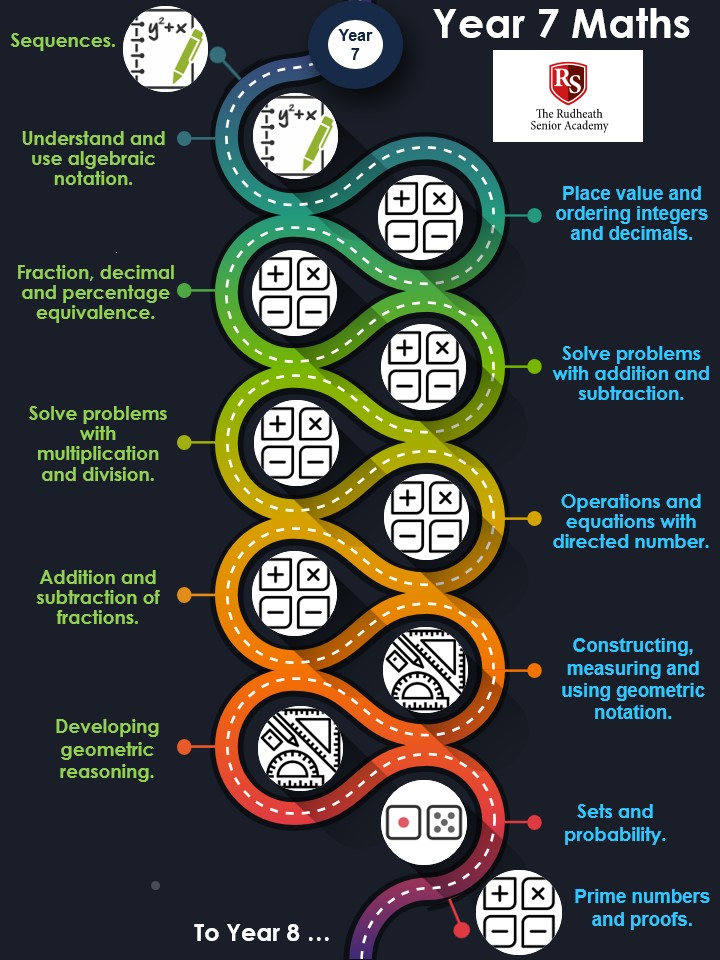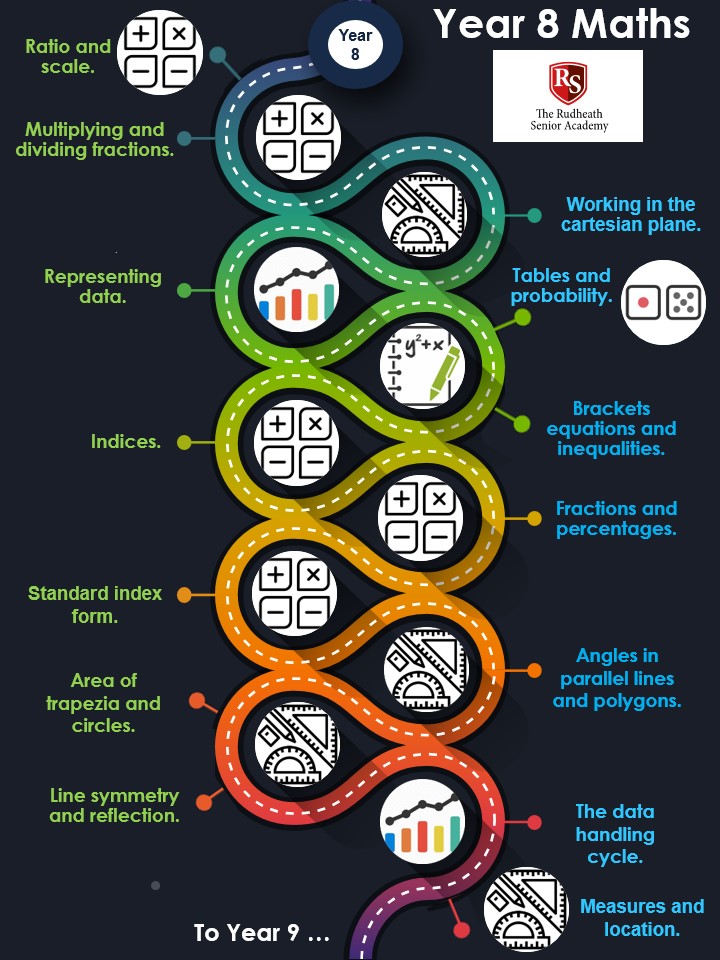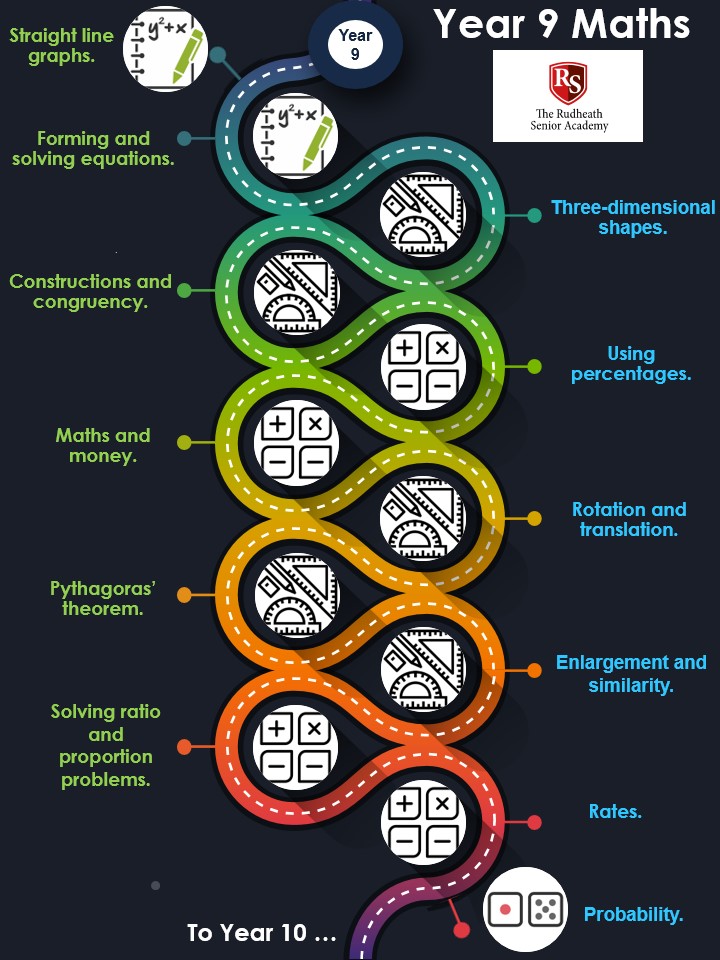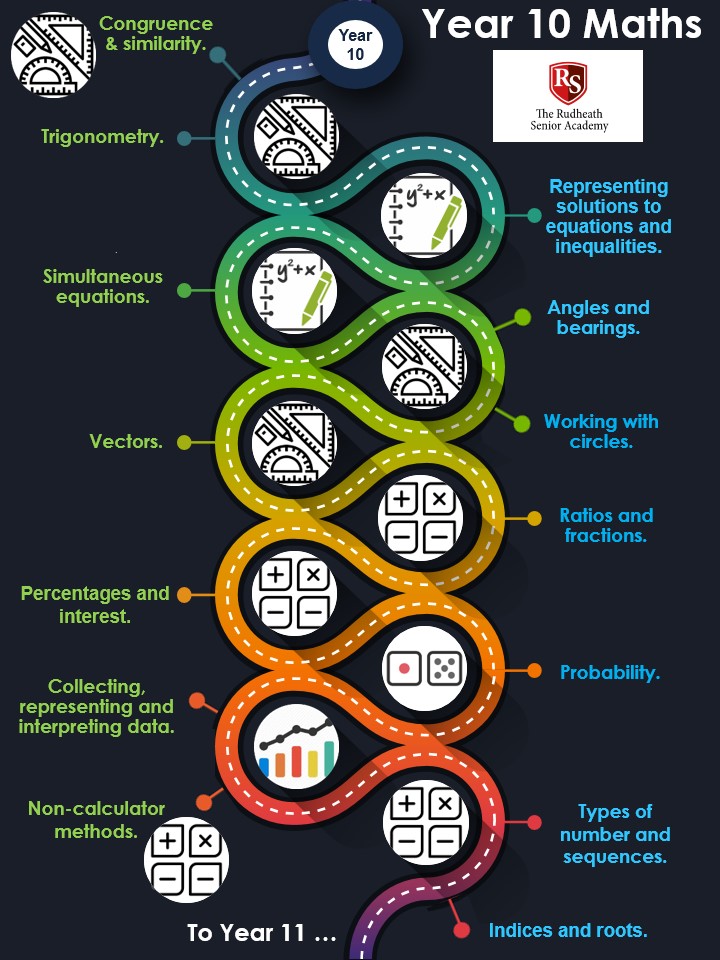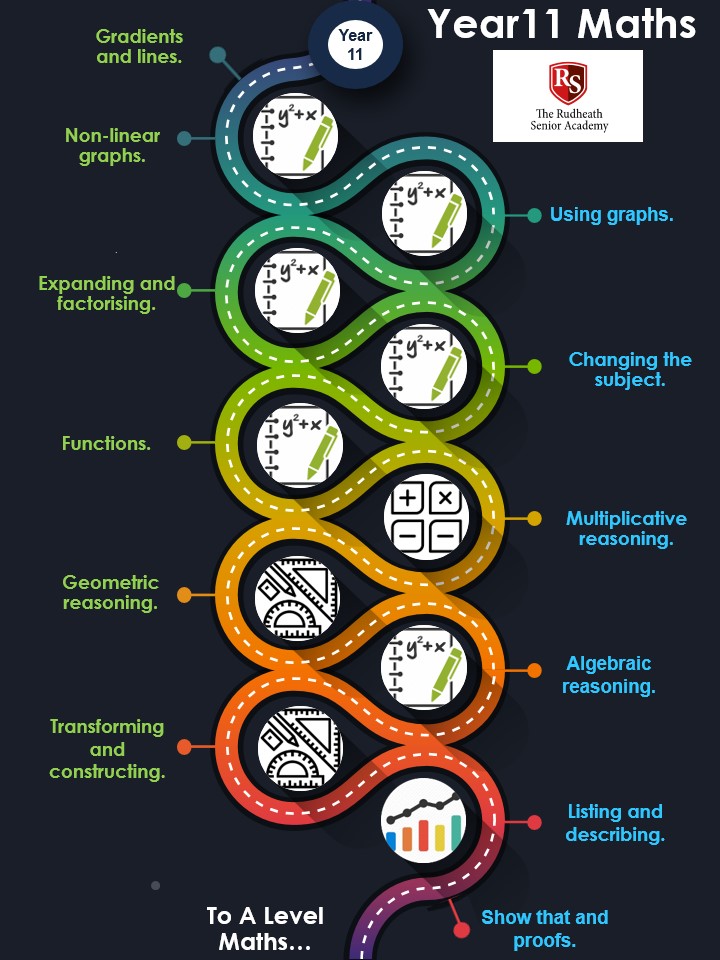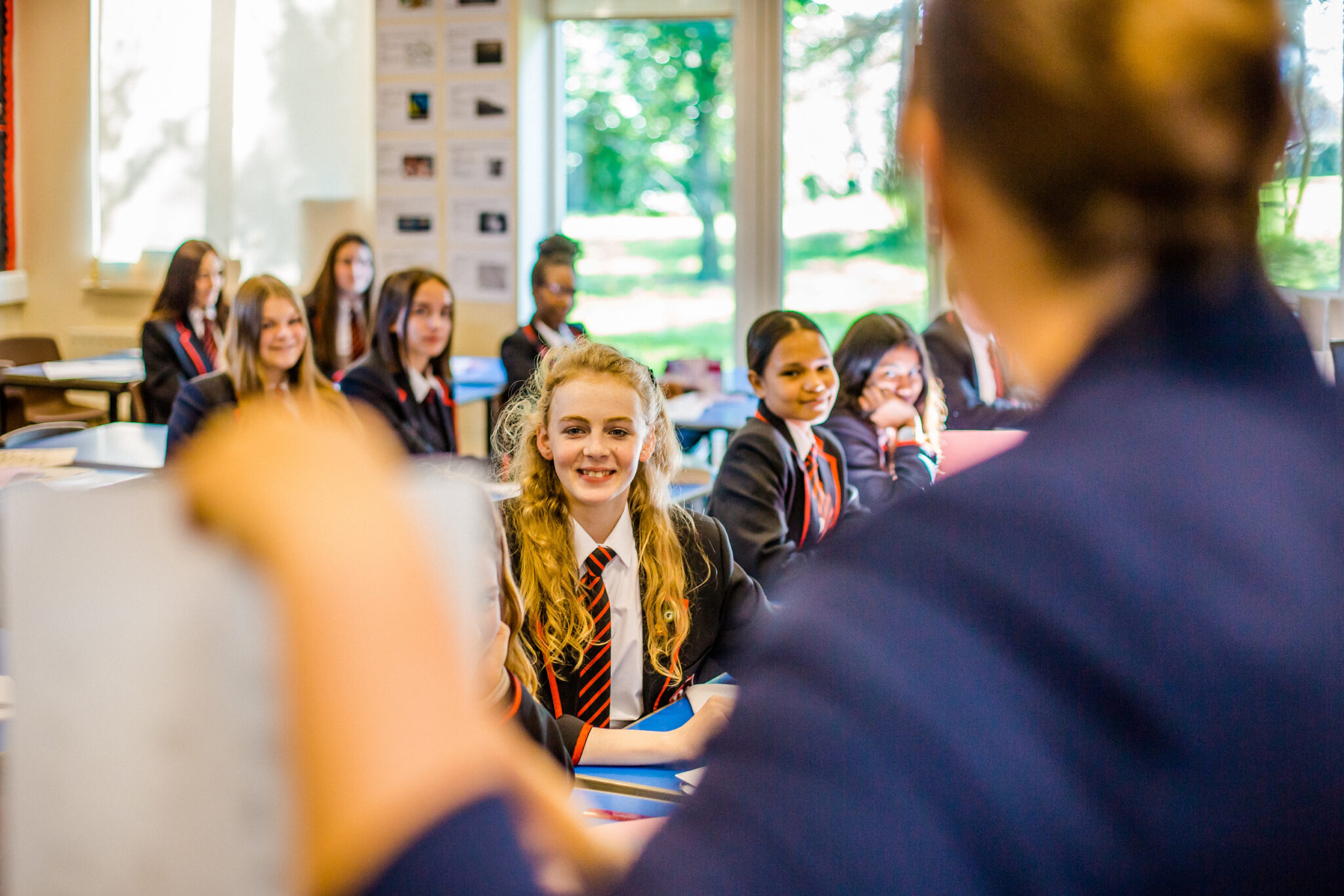
Maths
The purpose of the Maths curriculum is to provide a secure understanding of mathematical concepts, from basic principles of mathematics to complex topics that combine several areas of study into a single question. The curriculum promotes retention of knowledge and a depth of learning rather than an accelerated curriculum, resulting in pupils who are confident in taking their studies further into sixth form, university and beyond.
Our Maths curriculum aims to be ambitious, rich in skills and knowledge. We aim to develop learner’s resilience and independence preparing all for everyday life and for future employment. The curriculum has been developed with a focus to all students mastering the key concepts of the subject at KS3 in order to be successful learners at KS4 and beyond. All learners are required to develop fluency within the content studied and are required to demonstrate further depth of understanding through reasoning, justifying and through applying skills and knowledge in a variety of problem solving contexts. The Mathematics curriculum at RSA provides a platform for learners to understand the essential maths for their futures and to inspire their curiosity and enjoyment of the subject to motivate study at higher levels.
Mastery of Mathematics is to be achieved through a five year curriculum that cements the foundations of knowledge for secure understanding to be built upon. As a final product at RSA, students are required at GCSE to be resilient learners, able to overcome problems and apply their knowledge in varied ways.
We as a department are passionate about ensuring that our young people are equipped with the knowledge and skills for the next stage of their journey, NO student’s future should be limited by their understanding of the basic subject necessities and ALL students should feel empowered and able to achieve in order to access their desired next stages.
To build academic excellence and ambition, a 5 year spiral curriculum is in place which builds on the key concepts and skills which learners need to develop between years 7 to year 11. The foundations will be developed at KS3, taking their prior learning from KS2 into full account and at each subsequent stage picking up their existing knowledge and elevating it to the next level. An example for this is that early on in year 8 we learn how to multiply and divide with fractions. Later in year 8 this knowledge is required in topics such as probability and into year 9 with the topic of straight line graphs.
Over the course of the curriculum delivery, a focus on retrieval is prevalent, each lesson students partake in knowledge drills in the form of Flash Back Fours. This activity prepares students for the key skills and knowledge required for their current learning and ensure that students are continuously revisiting material from earlier in their journey. Key assessments over each term test student’s knowledge and understanding of the newly acquired material whilst the interleaving of the end of term assessments truly test student’s acquisition of knowledge over time. Assessments offer students the opportunity to assess where they are at with a key focus to what areas require improvements. Question level analysis and feedback allows for bespoke and well informed next steps for improvement.
Teacher starts each lesson with a knowledge drill in order to review relevant prior knowledge, to activate schemata ready to build new knowledge into long term learning).
Small amounts of new knowledge are presented at a time with the opportunity for students to then practice this new material, direct modelling supports students to see accurate mathematical structure and form.
Questioning, which is considered and controlled. Staff must play the role of facilitator allowing students where possible to form their own understanding and methods.
The use of strategies such as colour coding and dual coding / diagrams in order to make concepts more visually engaging and memorable. Students are given opportunities for extensive, successful, independent practice and are frequently given opportunity to reflect on the accuracy of their own work and given time to engage with improvements and reflect on their success with outcomes.
Our assessment plan offers plenty of opportunity for retrieval practice and assessment of long term learning. It is designed to assess student’s capabilities in newly acquired knowledge whilst promoting their retention and recall of knowledge overtime.
Progress and attainment data is collected three times a year from the exams sat in Autumn 2, Spring 2 and Summer 2, these assessments take into consideration all learning to date, interleaving the learning that has taken place. Interim assessments and quizzes take many forms, are varied in style to meet a variety of disciplines and are appropriate to the topic being taught. Learners take part in regular knowledge drills. These tasks assess knowledge learnt overtime and consolidate required knowledge for the current topic.
Students receive feedback from assessments to help them make good progress. Feedback can take the form of “Live marking” in the classroom where students have opportunity to correct and improve their work in the moment as well as whole class feedback and question level targeted analysis.
A calendar for enrichment in Maths is being continually defined and improved and it is our vision that all year groups will have meaningful enrichment in the subject outside of their normal classroom lessons. Students regularly are encouraged to think critically in competitions and puzzles shared within the Academy and through our weekly Newsletter. We enter the national UKMT challenges at KS3 and have historically had success on this national stage.
Homework is designed to support understanding of key concepts and is issued to all students within their Teams page. This centres around the learning of key vocabulary and terminology and practices core skills and the application of knowledge through online platforms such as Pixl and Eedi.
Maths can lead on to further study at A-Level and degree level in the subject as well as Economics. Maths underpins any role and career but has strong links to the following careers:
- Software engineer
- Data analyst
- Data scientist
- Chartered accountant
- Investment analyst
- Research scientist (maths)
- Sound engineer
- Statistician
- Astronomer


